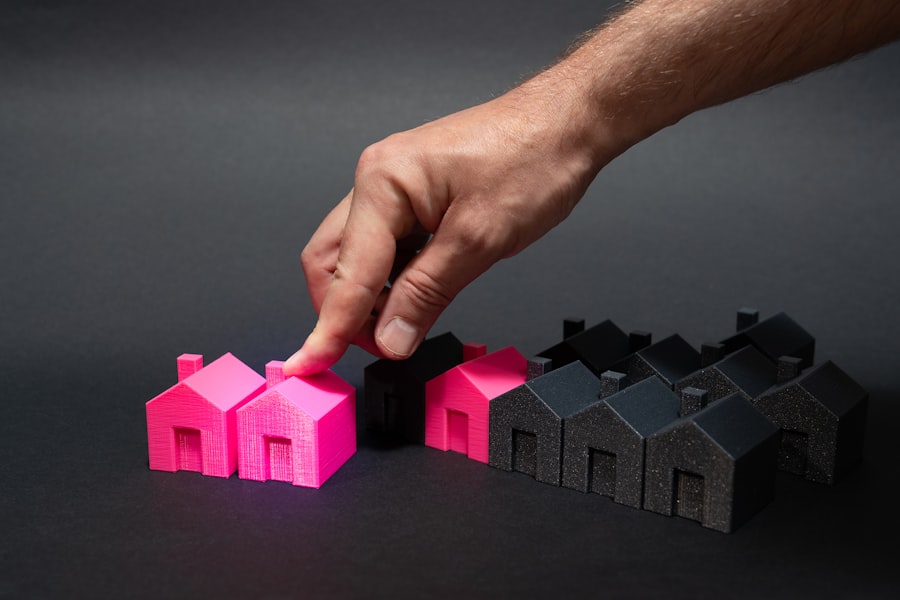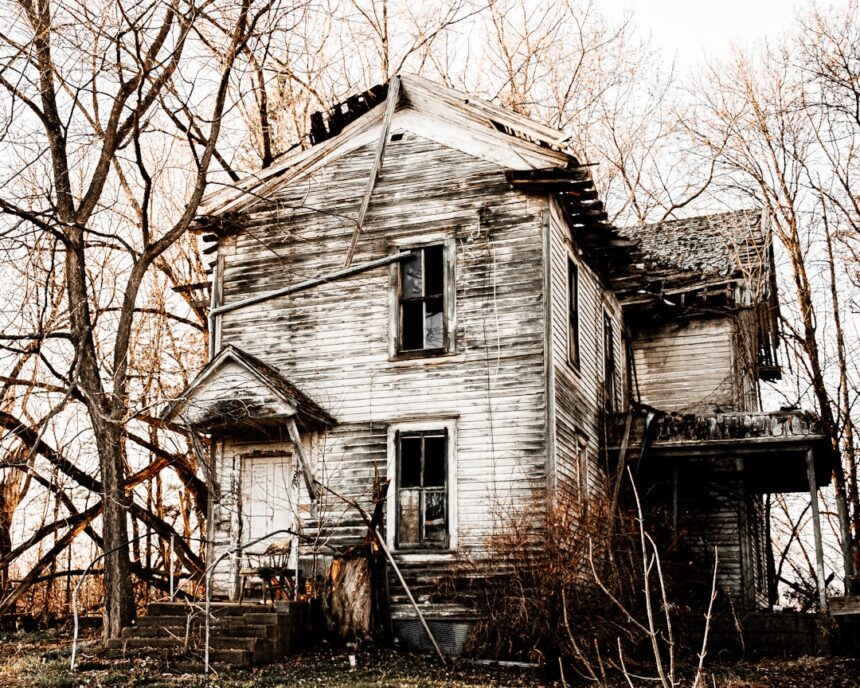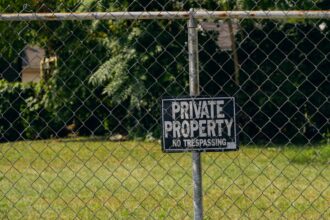House deed forgery is a serious crime that can have far-reaching consequences for all parties involved. As I delve into this topic, I find it essential to understand what constitutes house deed forgery. Essentially, it involves the unauthorized alteration or creation of a property deed with the intent to deceive.
This can occur in various forms, such as falsifying signatures, altering property descriptions, or even creating entirely fictitious documents. The implications of such actions are profound, affecting not only the immediate victims but also the integrity of the real estate market as a whole. In my exploration of this issue, I have come to realize that house deed forgery is not merely a legal concern; it is a violation of trust that can lead to devastating emotional and financial repercussions.
Victims often find themselves embroiled in lengthy legal battles, struggling to reclaim their rightful ownership of property. The complexity of real estate transactions and the reliance on documentation make it a fertile ground for fraudulent activities. As I continue to examine the ramifications of this crime, I am struck by the need for increased awareness and preventive measures to protect property owners from such deceitful practices.
Key Takeaways
- House deed forgery is a serious crime that can have legal and financial consequences.
- Forgery of a house deed can lead to criminal charges and civil lawsuits, as well as damage to credit and financial standing.
- Property ownership can be impacted by house deed forgery, making it challenging to sell or transfer the property.
- Forgers and accomplices can face repercussions, including criminal charges and financial liability.
- Rectifying a forged house deed may require legal action and steps to prove the forgery, and preventing forgery requires safeguards and precautions.
Legal Ramifications of House Deed Forgery
The legal ramifications of house deed forgery are extensive and can vary significantly depending on jurisdiction. When I consider the legal landscape surrounding this issue, I recognize that individuals found guilty of forgery may face severe penalties, including hefty fines and imprisonment. The law treats forgery as a serious offense because it undermines the very foundation of property rights and ownership.
In many cases, the legal system aims to deter such behavior by imposing strict penalties on those who engage in fraudulent activities. Moreover, the victims of house deed forgery often find themselves in a precarious position. They may need to navigate complex legal proceedings to prove their ownership and rectify the situation.
This can involve presenting evidence in court, which may include original documents, witness testimonies, and expert opinions. The burden of proof typically lies with the victim, making it crucial for them to gather comprehensive documentation to support their claims. As I reflect on these legal challenges, I understand that the road to justice can be long and arduous for those affected by house deed forgery.
Financial Consequences of House Deed Forgery

The financial consequences of house deed forgery can be devastating for victims. When I think about the potential losses incurred, I realize that individuals may face significant expenses related to legal fees, property assessments, and even potential restitution payments if they are unable to reclaim their property. The financial strain can be overwhelming, especially for those who may have invested substantial resources into their homes.
In some cases, victims may even find themselves liable for debts associated with the forged deed, further complicating their financial situation. Additionally, the impact of house deed forgery extends beyond immediate financial losses. Victims may experience long-term repercussions that affect their overall financial stability.
For instance, if they are forced to sell their property at a loss or face foreclosure due to fraudulent activities, their credit scores may suffer significantly. This can hinder their ability to secure loans or mortgages in the future, creating a cycle of financial instability that can be difficult to escape. As I consider these financial ramifications, it becomes clear that house deed forgery is not just a legal issue; it is a profound economic challenge that can alter lives.
Impact on Property Ownership
| Factors | Impact |
|---|---|
| Property Taxes | May increase or decrease based on local government decisions |
| Property Value | Can appreciate or depreciate over time due to market conditions |
| Property Insurance | Premiums may change based on property value and risk factors |
| Property Rights | Can be affected by zoning laws, easements, and other regulations |
The impact of house deed forgery on property ownership is profound and multifaceted. When I reflect on this issue, I recognize that victims may find themselves in a state of uncertainty regarding their rightful ownership. The very essence of property rights is called into question when a forged deed is introduced into the equation.
This can lead to disputes with other claimants who may also believe they have legitimate ownership rights over the same property. Furthermore, the emotional toll of such disputes cannot be understated. As I consider the psychological effects on victims, I realize that they may experience feelings of betrayal and anxiety as they navigate the complexities of proving their ownership.
The stress associated with potential legal battles and the fear of losing their homes can take a significant toll on mental well-being. In many cases, individuals may feel isolated and overwhelmed by the situation, highlighting the need for support systems and resources for those affected by house deed forgery.
Potential Criminal Charges for Forgery
When it comes to potential criminal charges for house deed forgery, the consequences can be severe. As I explore this aspect of the issue, I find that individuals caught engaging in such fraudulent activities may face charges ranging from misdemeanor offenses to felonies, depending on the severity of the crime and local laws. The legal system takes forgery seriously because it undermines trust in property transactions and can lead to significant financial harm for victims.
In addition to criminal charges, those convicted of house deed forgery may also face civil penalties and restitution requirements. This dual approach—criminal prosecution alongside civil liability—serves as a deterrent against such fraudulent behavior. As I consider the implications for those who engage in forgery, it becomes evident that the risks far outweigh any potential short-term gains they might hope to achieve through deceitful means.
Civil Lawsuits and Liability

Civil lawsuits are another avenue through which victims of house deed forgery can seek justice and compensation for their losses. When I think about the civil litigation process, I recognize that victims often pursue claims against not only the forger but also any accomplices or entities that may have facilitated the fraud. This can include real estate agents, title companies, or even financial institutions that failed to conduct proper due diligence during transactions.
The burden of proof in civil cases typically lies with the victim, requiring them to demonstrate that they suffered damages as a direct result of the forgery. This can involve presenting evidence such as original deeds, transaction records, and expert testimony regarding property values. As I reflect on this process, I understand that while civil lawsuits can provide a pathway to recovery for victims, they also require significant time and resources to navigate successfully.
Damage to Credit and Financial Standing
One of the often-overlooked consequences of house deed forgery is its potential impact on an individual’s credit and overall financial standing. When I consider how victims may struggle with financial obligations related to their properties—such as mortgage payments or property taxes—it becomes clear that their credit scores can take a significant hit as a result of these challenges. If they are unable to resolve issues stemming from forged deeds promptly, they may find themselves facing late payments or defaults that further damage their creditworthiness.
Moreover, the long-term effects on financial standing can be profound. As I think about how credit scores influence various aspects of life—from securing loans to obtaining favorable interest rates—I realize that victims may face obstacles in rebuilding their financial lives after experiencing house deed forgery. This underscores the importance of addressing not only the legal aspects of such cases but also providing support for victims as they work to restore their financial health.
Challenges with Selling or Transferring the Property
Selling or transferring property affected by house deed forgery presents unique challenges that can complicate an already difficult situation. When I consider how victims may attempt to sell their homes or transfer ownership rights, I recognize that potential buyers or lenders will likely conduct thorough due diligence before proceeding with any transaction. If there are unresolved issues related to forged deeds, this can raise red flags and deter interested parties from moving forward.
Additionally, even if victims manage to find a buyer willing to take on the risks associated with a forged deed, they may face difficulties in securing financing for the sale. Lenders typically require clear title and ownership documentation before approving loans, and any discrepancies related to forged deeds can complicate this process significantly. As I reflect on these challenges, it becomes evident that victims must navigate a complex landscape when attempting to sell or transfer properties impacted by forgery.
Repercussions for the Forger and Accomplices
The repercussions for individuals involved in house deed forgery extend beyond legal penalties; they can also have lasting effects on personal relationships and reputations. When I think about those who engage in such fraudulent activities—whether as primary perpetrators or accomplices—I recognize that they risk not only criminal charges but also social ostracism and damage to their professional reputations.
Moreover, accomplices who facilitate forgery may also face legal consequences if they are found complicit in the crime. This highlights the importance of accountability within networks involved in real estate transactions. As I consider these repercussions for those who engage in forgery, it becomes clear that the consequences extend far beyond immediate legal penalties; they can fundamentally alter lives and relationships.
Steps for Rectifying a Forged House Deed
Rectifying a forged house deed is often a complex process that requires careful navigation through legal channels. When I think about what steps victims should take to address this issue, I recognize that seeking legal counsel is paramount. An experienced attorney specializing in real estate law can provide invaluable guidance on how to proceed with rectifying ownership claims and addressing any fraudulent activities associated with the forged deed.
Victims should also gather all relevant documentation related to their property ownership—such as original deeds, transaction records, and any correspondence with involved parties—to build a strong case for reclaiming their rights. Additionally, filing a report with local law enforcement may be necessary to initiate an investigation into the forgery itself. As I reflect on these steps, it becomes evident that while rectifying a forged house deed can be challenging, proactive measures taken by victims can significantly improve their chances of achieving a favorable outcome.
Preventing House Deed Forgery: Safeguards and Precautions
Preventing house deed forgery requires vigilance and proactive measures from both property owners and professionals involved in real estate transactions. When I consider how individuals can safeguard themselves against potential fraud, I recognize that conducting thorough due diligence is essential. This includes verifying the legitimacy of all documents involved in property transactions and ensuring that all parties are who they claim to be.
As I reflect on these preventive measures, it becomes clear that fostering awareness about house deed forgery is crucial for protecting property owners from falling victim to such deceitful practices. By taking proactive steps and remaining vigilant throughout real estate transactions, individuals can help safeguard themselves against potential fraud and its devastating consequences.
Forging a house deed is a serious offense that can lead to severe legal consequences, including hefty fines and imprisonment. This fraudulent act not only undermines the integrity of property ownership but also causes significant distress to the rightful owners. In a related article, the complexities and repercussions of such fraudulent activities are explored in detail, shedding light on the legal processes involved and the potential impact on victims. For more insights into the consequences of forging a house deed, you can read the full article on this topic by visiting this link.
✅WATCH NOW! My Mother-in-Law’s Real Estate Heist Collapses Spectacularly
FAQs
What is a house deed?
A house deed is a legal document that proves ownership of a property. It includes information about the property, such as its location, boundaries, and any restrictions or easements.
What are the consequences of forging a house deed?
Forging a house deed is a serious crime that can result in legal consequences, including criminal charges and civil lawsuits. It can also lead to financial loss for the rightful property owner and cause confusion and disputes over property ownership.
What are the legal penalties for forging a house deed?
The legal penalties for forging a house deed can vary depending on the jurisdiction and the specific circumstances of the case. In general, forging a house deed can result in criminal charges, fines, and potential imprisonment. Additionally, the forger may be required to compensate the rightful property owner for any financial losses incurred as a result of the forgery.
How can the rightful property owner protect themselves from forged house deeds?
To protect themselves from forged house deeds, property owners should regularly review their property records and ensure that all documents related to their property are accurate and up to date. It is also important to keep important documents in a secure location and to be cautious when signing any legal documents related to the property.
What should I do if I suspect a house deed has been forged?
If you suspect that a house deed has been forged, it is important to seek legal advice as soon as possible. An attorney can help you determine the best course of action and may be able to assist you in resolving the situation through legal means. It is also important to report the suspected forgery to the appropriate authorities, such as the police or the local land records office.




